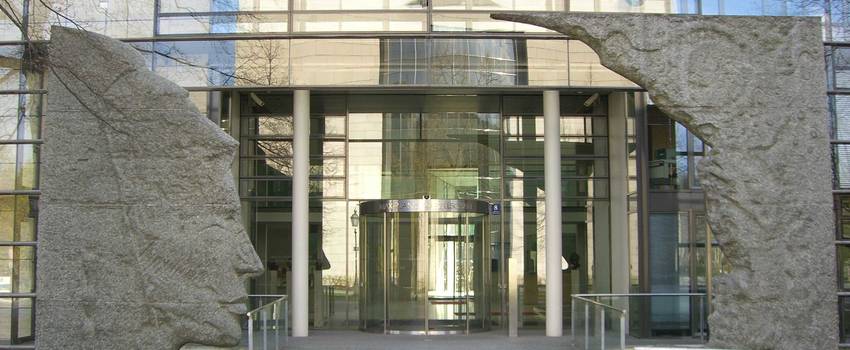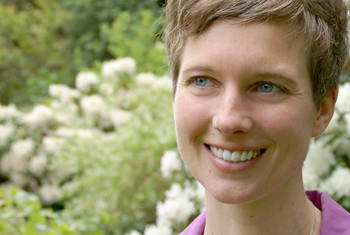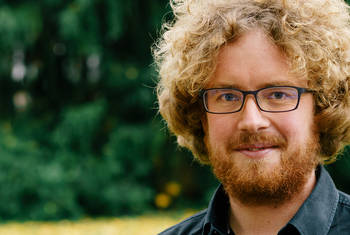Meinrat Andreae What is the Impact of Aerosol Particles on Cloud Formation?
Meinrat O. Andreae is Director and Scientific Member at the Max Planck Institute of Chemistry where he initiated the Biogeochemistry Department. He has been Visiting Professor at the University of Antwerp, the National Center for Atmospheric Research in Boulder, the University of California, Irvine, and the California Institute of Technology in Pasadena. In addition, Andreae is a reviewing editor of Science. In 2009, he became a Fellow of the American Association for the Advancement of Science and in 2014, he was awarded the Waldo E. Smith Award and became a Fellow of the American Geophysical Union. Since 2000, the role of atmospheric aerosols in the climate system has been one of the core interests of Andreae's research.
Area of Research
Biogeochemistry
since 1987
Director
Max Planck Institute for Chemistry
Department of Biogeochemistry
1986-1987
Professor of Oceanography
Florida State University
1982-1986
Associate Professor of Oceanography
Florida State University
1978-1982
Assistant Professor of Oceanography
Florida State University
1977
PhD in Oceanography
University of California, San Diego
 © Maximilian Dörrbecker
© Maximilian Dörrbecker
Max Planck Society
"The Max Planck Society is Germany's most successful research organization. Since its establishment in 1948, no fewer than 18 Nobel laureates have emerged from the ranks of its scientists, putting it on a par with the best and most prestigious research institutions worldwide. The more than 15,000 publications each year in internationally renowned scientific journals are proof of the outstanding research work conducted at Max Planck Institutes – and many of those articles are among the most-cited publications in the relevant field." (Source)
Institute
Max Planck Institute for Chemistry
Current research at the Max Planck Institute for Chemistry in Mainz aims at an integral understanding of chemical processes in the Earth system, particularly in the atmosphere and biosphere. Investigations address a wide range of interactions between air, water, soil, life and climate in the course of Earth history up to today´s human-driven epoch, the Anthropocene. The Max Planck Institute for Chemistry is one of the two oldest institutes of the Max Planck Society. It was founded in 1912 as the Kaiser Wilhelm Institute for Chemistry in Berlin, and it was relocated to Mainz in 1949. Particularly well-known scientists in the Institute´s history are the Nobel laureates Richard Willstätter, Otto Hahn, and Paul Crutzen. In honor of the former director and president of the Max Planck Society, the Max Planck Institute for Chemistry also carries the epithet Otto Hahn Institute. (Source)
Map
Rainfall has a large impact on how life functions on earth and this, in turn, has great implications for both the ecosystem and human well-being. The research presented in this video investigates the ways in which the pollution of the air system affects the working of clouds and how they produce rain. By measuring the aerosol particles in clouds in specific areas, MEINRAT O. ANDREAE explains, the research team discovered that in clean, unpolluted areas clouds were shallow and transparent and rainfall was gentle; this was in marked contrast to very polluted regions where clouds appeared almost like solid surfaces. When they grew high, they produced very violent rainfall with hail, thunder and lightning. These strong differences in cloud and rainfall formation – based on aerosol concentration – show that the pollution of the atmosphere through human emissions has had and will have strong consequences for earth’s climate.
LT Video Publication DOI: https://doi.org/10.21036/LTPUB10396
Smoking Rain Clouds Over the Amazon
- Meinrat O. Andreae, Daniel Rosenfeld, Paulo Artaxo, Alexandre A. Costa, G. P. Frank, K. M. Longo and Maria A. F. Silva-Dias
- Science
- Published in 2004
ACRIDICON–CHUVA Campaign: Studying Tropical Deep Convective Clouds and Precipitation over Amazonia Using the New German Research Aircraft HALO
- Manfred Wendisch, Ulrich Pöschl, Meinrat O. Andreae, Luiz A. T. Machado, Rachel Albrecht, Hans Schlager, Daniel Rosenfeld, Scot T. Martin, Ahmed Abdelmonem and Armin Afchine
- Bulletin of the American Meteorological Society
- Published in 2016
Rainforest Aerosols as Biogenic Nuclei of Clouds and Precipitation in the Amazon
- Ulrich Pöschl, Scot T. Martin, Baerbel Sinha, Q. Chen, Sachin S. Gunthe, Alex J. Huffman, Stephan Borrmann, Delphine K. Farmer, R.M. Garland and Günter Helas
- Science
- Published in 2010









